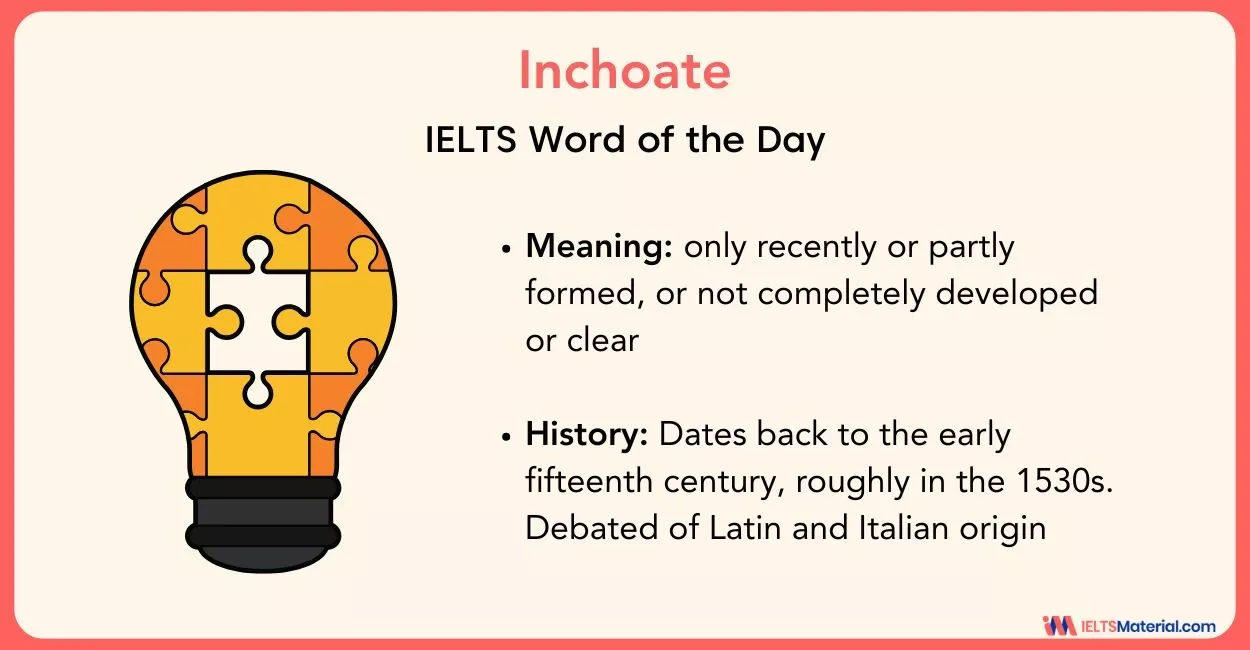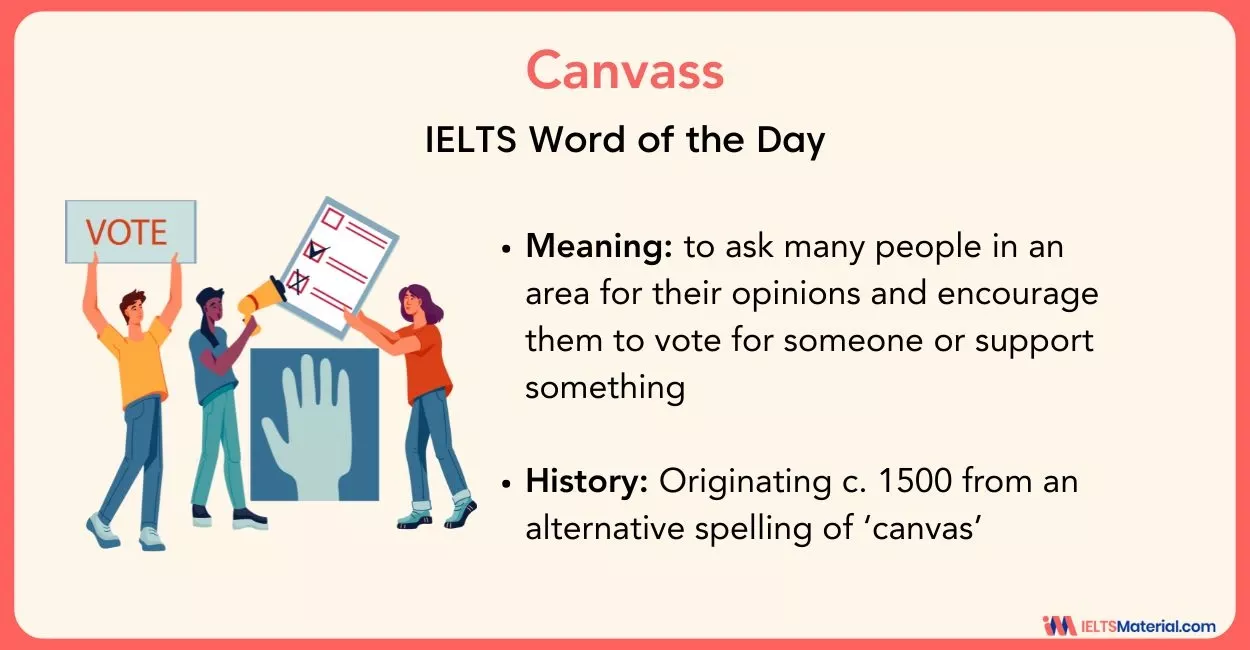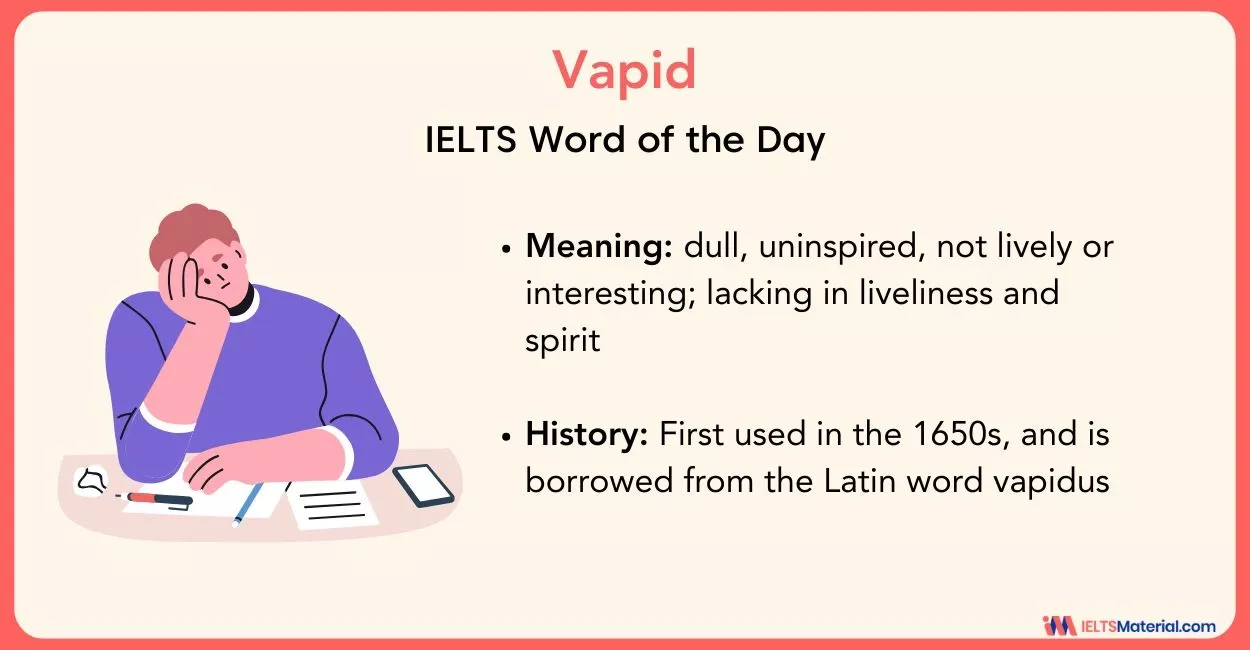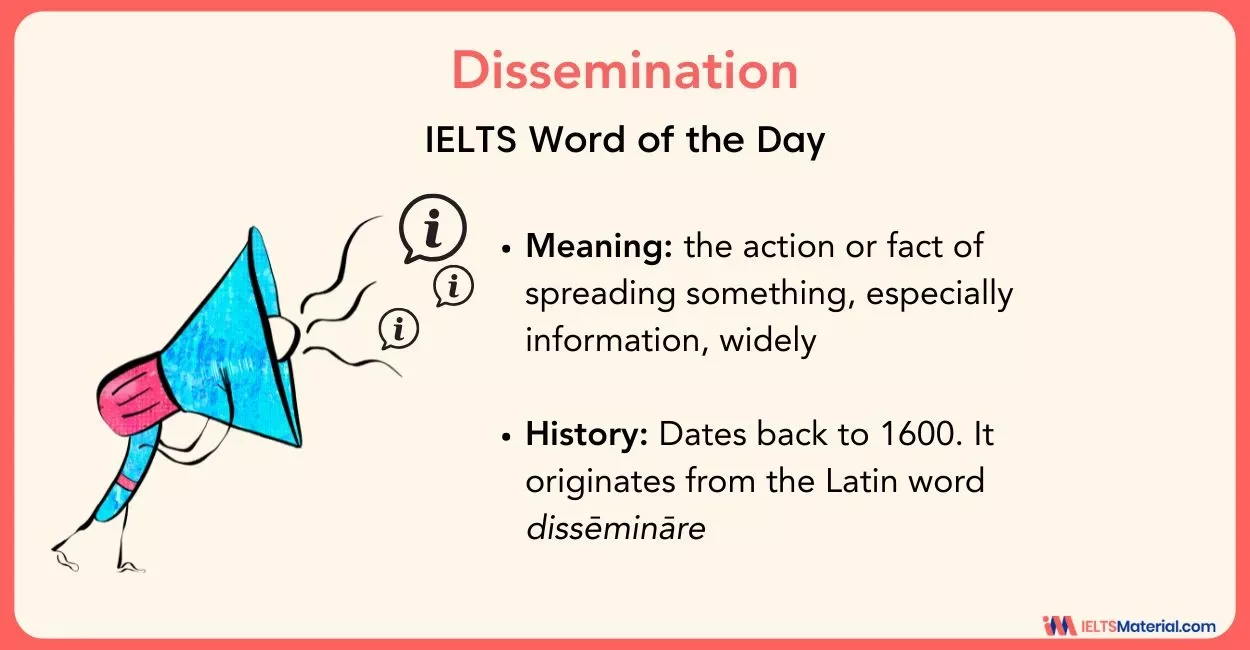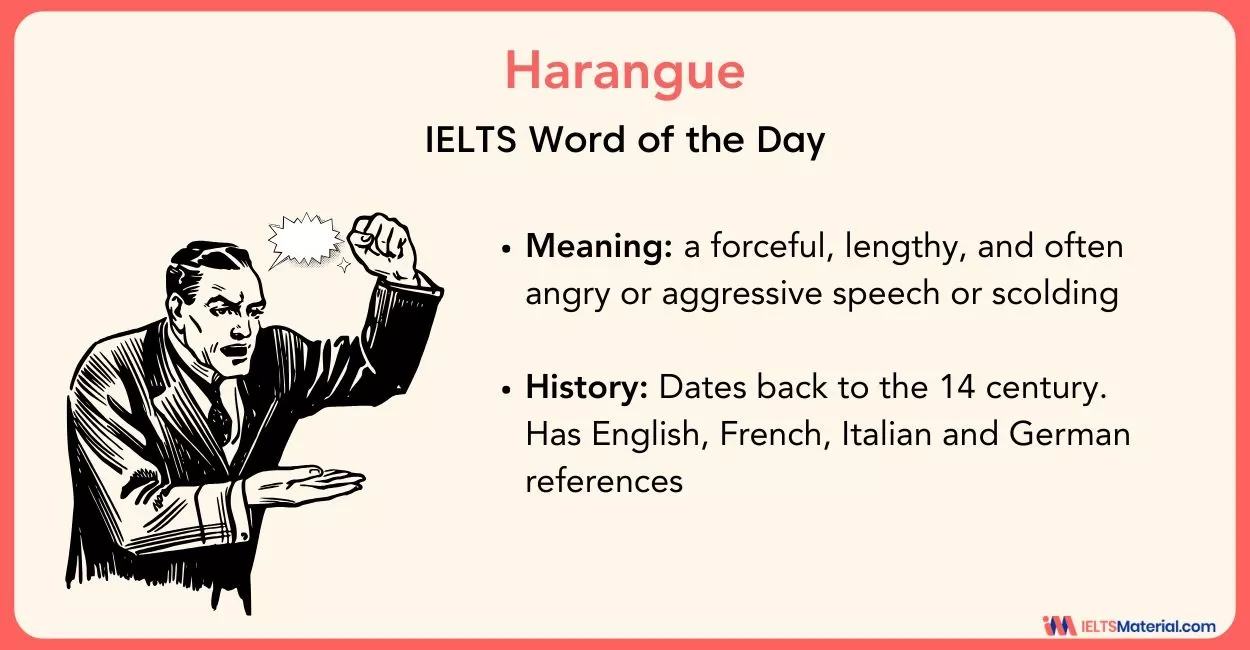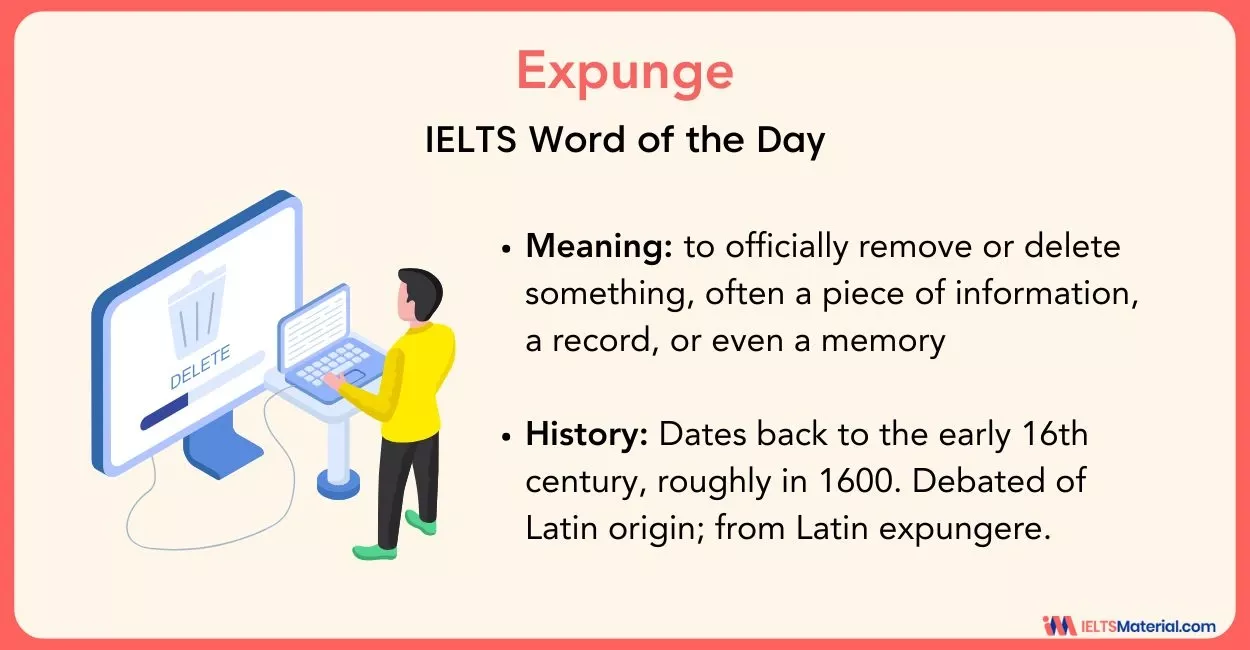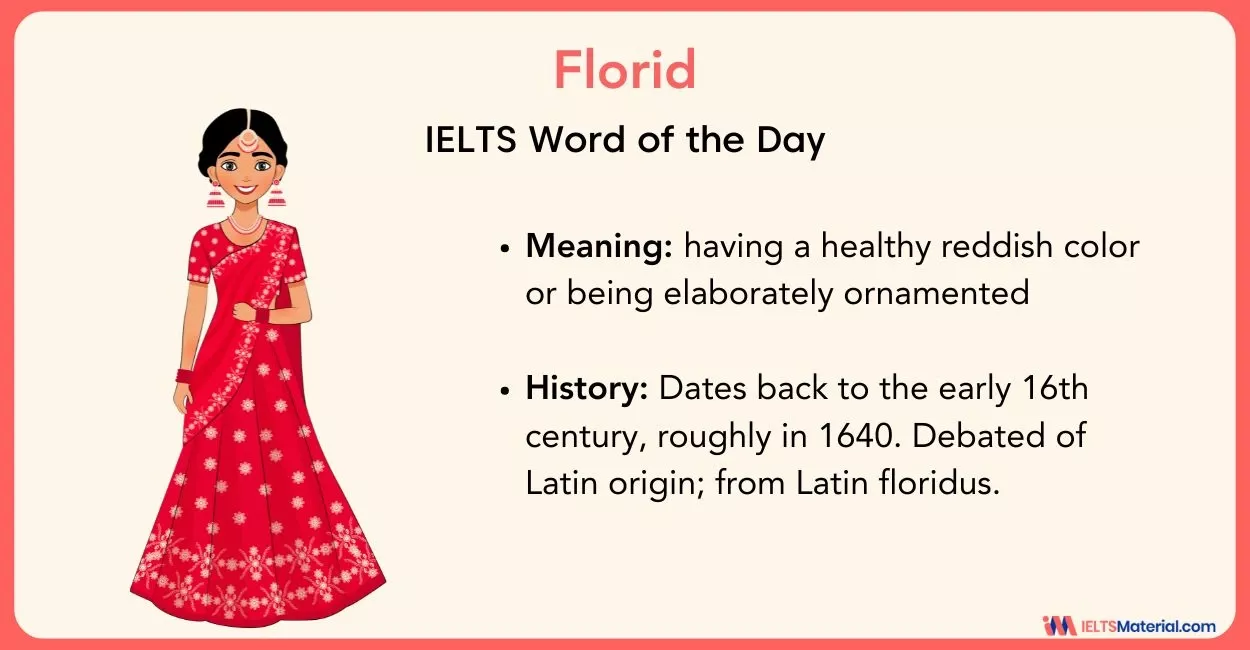Check out other Word of the Day Articles
Inchoate: Word Meaning, Examples, Origin & Usage in IELTS
Have you ever tried to explain an idea that’s still forming in your mind, something not yet fully developed, unclear, or incomplete? That is precisely when the word inchoate becomes useful. In this blog, we will look into the meaning, the roots, history of the word 'inchoate', learn the correct way to use the word when taking the IELTS exam, with some top synonyms for common adjectives in IELTS Speaking & Writing, like this one, and take some practice exercises to improve our understanding. Meaning of Inchoate Pronunciation: /ɪnˈkəʊət/ (It is pronounced in-KOH-it, with the stress on the second syllable, ‘koh’, and...

6 min read
Updated On
Canvass: Word Meaning, Examples, Origin & Usage in IELTS
If you have ever walked through a neighbourhood and found people knocking on doors before an election, they were likely out to canvass. However, the word ‘canvass’ is not limited to politics. It is a versatile and formal verb that means to ask for opinions, support, or sales, or to examine something in detail, all of which are common themes in IELTS Writing and Speaking tasks. So, learn the meaning, history, and proper usage of the term ‘canvass’, solidify your understanding through practical exercises, and add it to your IELTS Vocabulary words list for Band 8 or 9 to achieve your desired...

5 min read
Updated On
Vapid: Word Meaning, Examples, Origin & Usage in IELTS
Sometimes in life, we get bored and lack motivation, which eventually shows in our interactions and actions. In the IELTS exam, you can get a topic or question related to such scenarios. One of the common English words used in IELTS Speaking test as well as writing tasks is ‘vapid’. If you are not familiar with this word, you have come to the right page. In this blog, we will explore the meaning, origin, and formal usage of vapid, examine IELTS-specific examples, synonyms and antonyms of the word, and practice exercises to help you confidently use this impactful word in your speaking and...

6 min read
Updated On
Dissemination: Word Meaning, Examples, Origin & Usage in IELTS
When you are writing about the role of media, the importance of education, or how research findings are shared globally, using the word dissemination not only shows precision but also demonstrates a mature, formal tone, exactly what IELTS examiners look for. However, to achieve an IELTS band score of 7 and above, you need to use the word appropriately. Therefore, in this blog, we will explore the meaning, history, and proper usage of the term ‘dissemination’ within the context of the IELTS exam, solidifying our understanding through practical exercises. Meaning of Dissemination Pronunciation: /dɪˌsem.ɪˈneɪ.ʃən/ The word ‘dissemination’ (noun) means ‘the act of...

5 min read
Updated On
Harangue: Word Meaning, Examples, Origin & Usage in IELTS
You might have come across the word ‘harangue’, learnt it, and probably forgotten it. However, it is time to revise your knowledge or learn it, as you can use it during your IELTS Speaking and Writing exams to articulate strong opinions or discuss controversial topics and show off your list of advanced vocabulary. In this blog post, we will explore the meaning, origin, history, and proper usage of the term ‘harangue’ within the context of the IELTS exam, solidifying our understanding through practical exercises. Meaning of Harangue Pronunciation: /ˈhær.æŋ/ (British & American) Harangue can be used as a noun and a verb. In...

6 min read
Updated On
Expunge: Word Meaning, Examples, Origin & Usage in IELTS
English language learners aiming for a high band score in the IELTS exam know that strong vocabulary is not just about knowing many words; it is about choosing the right ones. One such powerful and advanced common English word used in IELTS Speaking test and the writing task is ‘expunge’. This verb carries a formal, deliberate tone and is used in an argumentative essay about historical censorship as well as while speaking about a personal experience you wish to forget. In this blog, we will explore the meaning, origin, and formal usage of expunge, examine IELTS-specific examples, synonyms and antonyms of the word, and...

5 min read
Updated On
Florid: Word Meaning, Examples, Origin & Usage in IELTS
Since lexical resources are an important aspect of the IELTS exam, it is important to focus on the word of the day daily and incorporate it into your vocabulary. One such word that can enhance both your writing and speaking tasks is ‘florid’. This advanced word not only shows a strong grasp of descriptive language but also adds nuance to your discussions, particularly on topics related to architecture, literature, health, or even emotions. In this blog post, we will therefore explore the meaning, history, and proper usage of the term ‘florid’ within the context of the IELTS exam, solidifying our understanding through...

6 min read
Updated On
